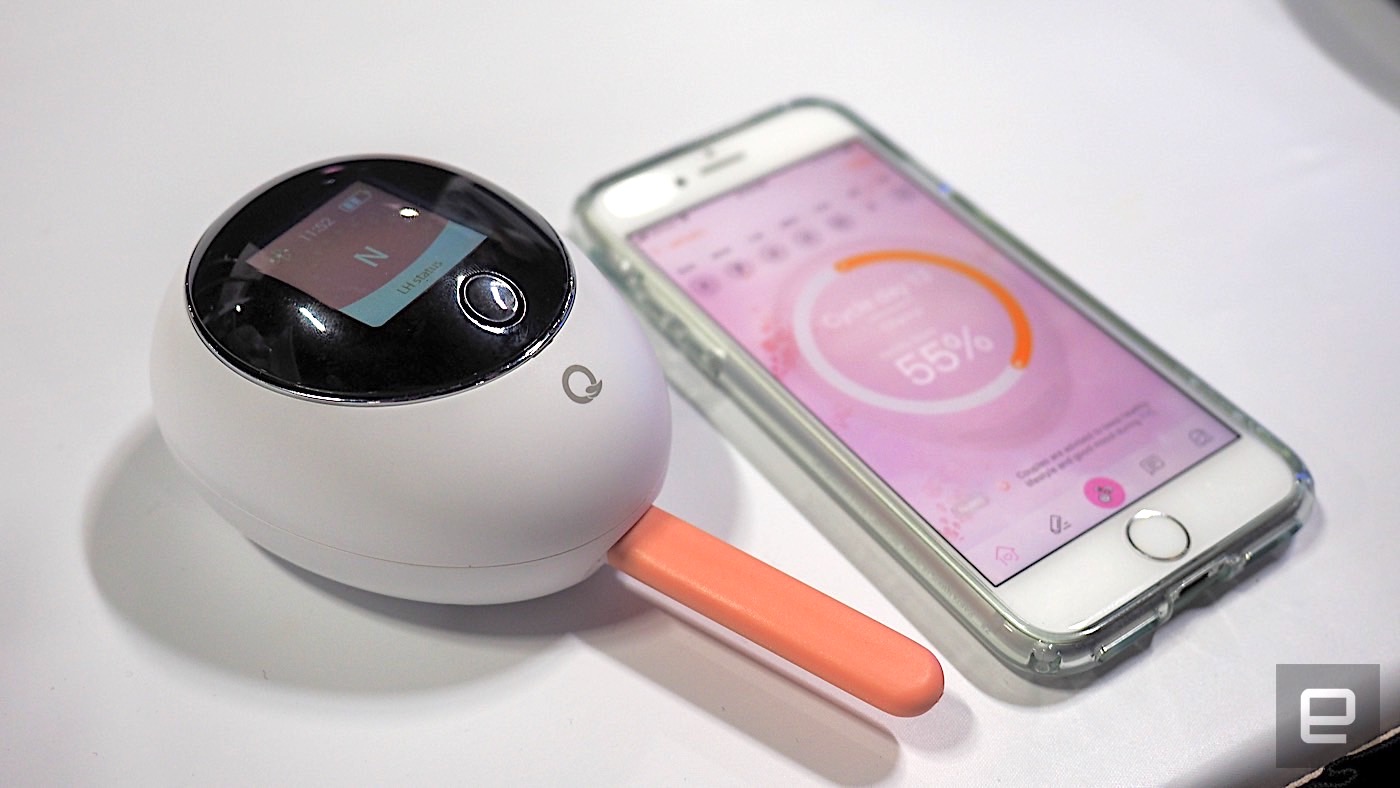Mira fertility monitor helps you track your ovulation with AI

One of the problems with over-the-counter fertility monitors is that they don't often tell you much beyond if you happen to be ovulating at the time you're taking the test. If you are, there's a smiley face, and if you're not, there's nothing. The Mira fertility monitor, however, is a little different. It has an AI so that it learns your patterns over time, and will figure out when you're ovulating potentially weeks before it happens.
The way it does this is by tracking the levels of luteinizing hormone in your pee. It's the same method that those drugstore fertility monitors use to figure out if you're ovulating, but the difference with the Mira is that it keeps track of that information so that you don't have to do it. You pee on the one-time-use Mira fertility wand, stick it into the egg-shaped digital reader, and voila, you'll see if you're ovulating in the tiny digital screen. It'll also send that information over to a companion app via Bluetooth. Apparently Mira uses a different kind of fertility wand than its drugstore counterpart -- it uses a fluorescent immunoassay that actually tells you the quantity of LH in your urine.
There are a lot of other digital fertility trackers on the market, like the Ava bracelet as well as apps like Glow. But most of them don't quite provide the same accuracy as monitoring your LH levels. Mira is an effort to combine the accuracy of a drugstore fertility monitor with machine learning and tracking.
Unfortunately, the Mira doesn't quite solve the other big problem with over-the-counter fertility monitors: the price. Higher-end ovulation kits from the drugstore can cost up to $60 for a reader and 20 wands, which is already pretty pricey. The Mira will cost much more: almost $100. And there's no word how much those extra Mira fertility wands will cost.
That said, Mira does say that it hopes to expand its portfolio to more than just fertility monitoring. It could sell special wands for influenza and allergen testing as well, which might justify its $100 price a little more.
Mira hopes to sell its fertility monitor starting in a few months. In the meantime, you can learn more about it on its website.
Click here to catch up on the latest news from CES 2018.
via Engadget RSS Feed "http://ift.tt/2FdkTS2"
Comments
Post a Comment